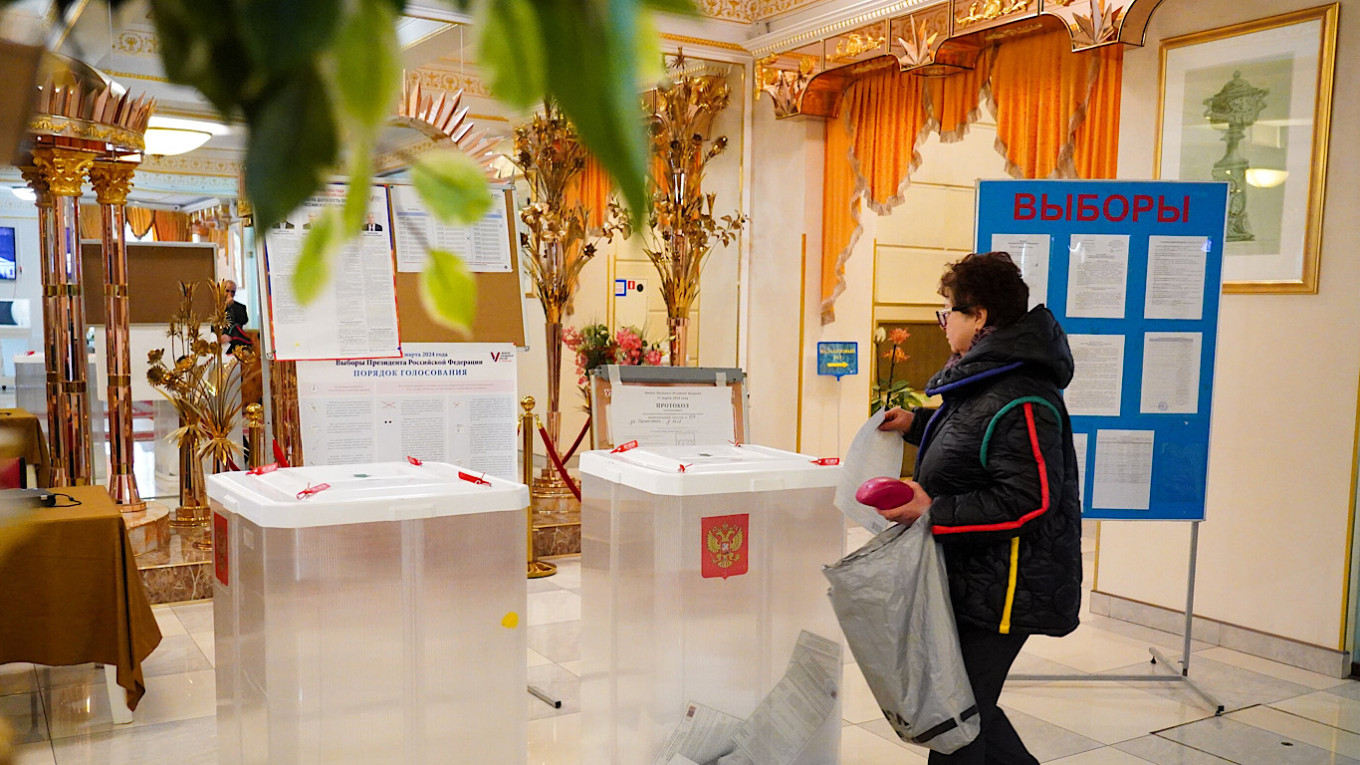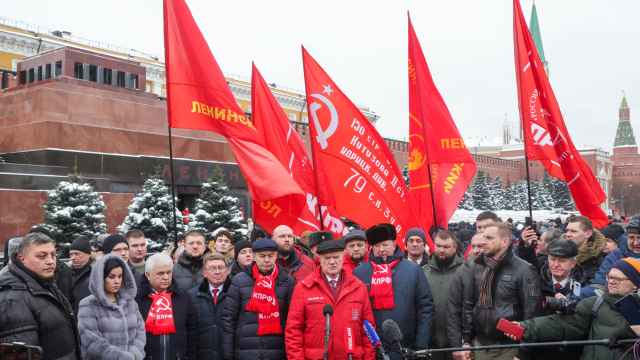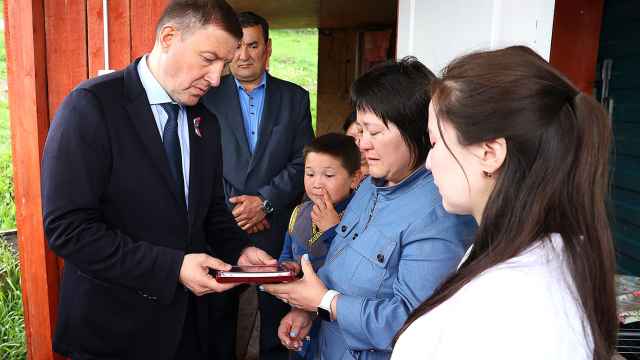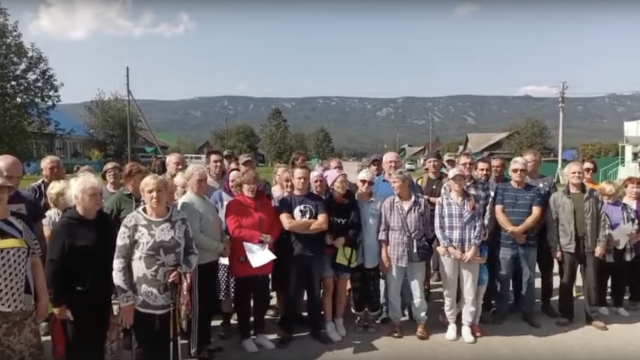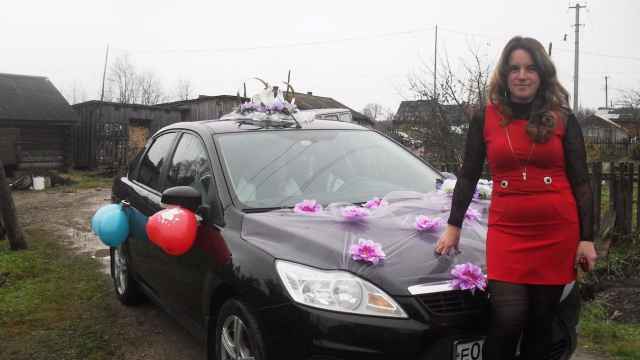Nearly 50,000 government positions will be up for grabs across 80 Russian regions this week in the country’s fifth wartime elections.
Some 55 million Russian citizens will be able to cast their ballots in direct elections, including 19 gubernatorial, 11 parliamentary and 25 city council races. And in annexed Crimea, the Russian-installed government will administer a vote for the head of the major port city of Sevastopol.
Most voters in Russia will cast their ballots on Sunday. Some regions have opted for an extended three and two-day in-person and online voting, mechanisms that election watchdogs have repeatedly condemned for their enabling of widespread electoral fraud.
Although the Kremlin has worked to root out any remaining political opposition since the full-scale invasion of Ukraine, some competitiveness and drama can still be found at the regional level of Russia’s political landscape.
This means that some of this week’s races might see genuine competition instead of the scripted displays of loyalty to the ruling United Russia party that typically define Russian elections.
“Despite general trends in domestic politics, Russia remains a large and diverse country where elections can take very different forms,” electoral experts Ksenia Smolyakova and Vadim Ternovoy said in an analysis published by the Electoral Atlas project on Monday.
“In some places there has been no political competition for a couple of decades, while elsewhere a hidden or even open struggle among elites continues, with independent candidates running against incumbent regional leaders,” they said.
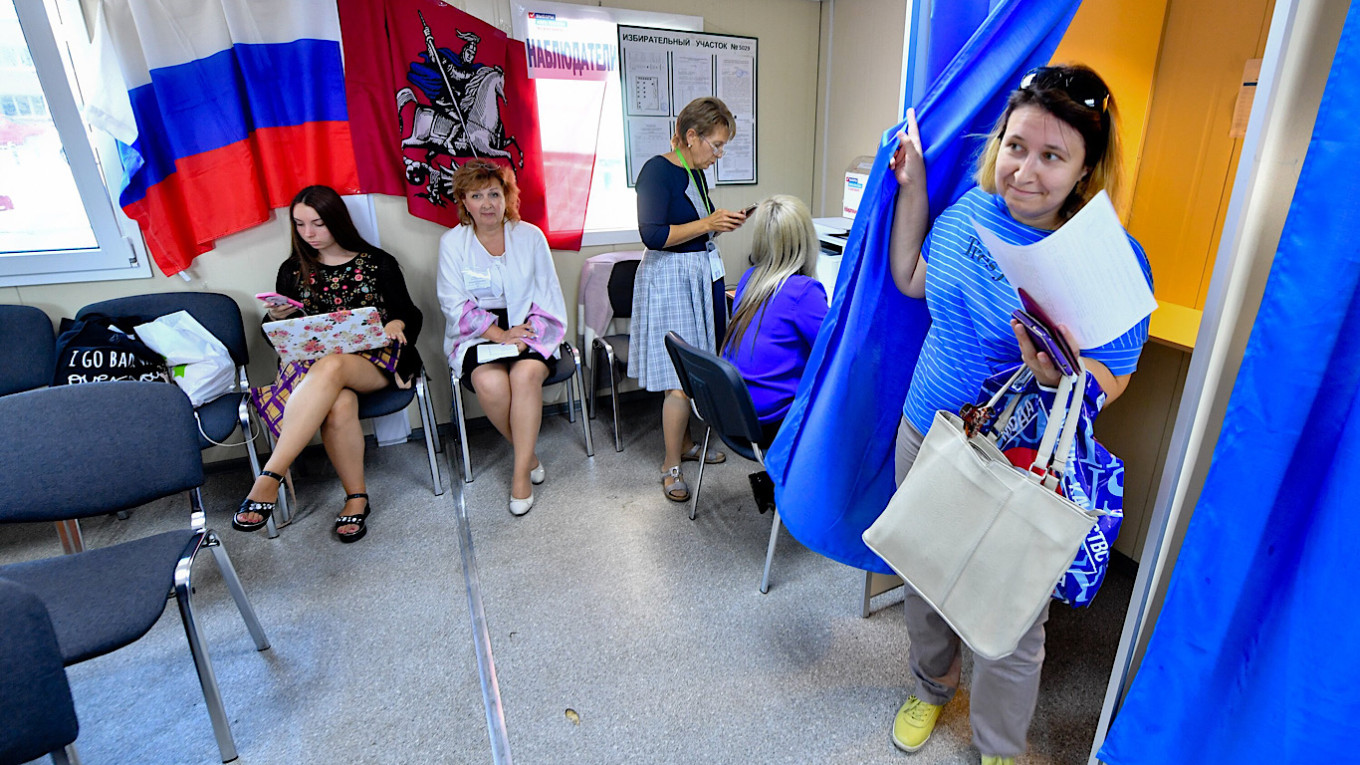
‘The most competitive in Russia’
The northwestern Arkhangelsk region and the Siberian Irkutsk region’s gubernatorial races will go forward with no predictable outcome — a rarity in today’s Russia.
In the Irkutsk region, an industrial hub in southeastern Siberia, United Russia’s incumbent Igor Kobzev is preparing for a showdown with his Communist Party predecessor Sergei Levchenko.
Levchenko unexpectedly won the governor's seat in a runoff vote in 2015, upending federal authorities’ plans and triggering a protracted standoff with Moscow.
He was forced to resign in 2019 after his son was arrested on bribery charges widely seen as a politically motivated attempt to force his father out of office.
The communist governor’s resignation was met with a large rally in his support in the region’s capital, Irkutsk.
The tenure of his successor Kobzev was marred by countless conflicts with local elites, including fellow United Russia members.
“Igor Kobzev is heading for a record — in the Irkutsk region, only Governor Boris Govorin had previously run for a second term and won. All the other governors failed to complete even one term, which also speaks volumes about the region’s [political landscape],” Electoral Atlas analysts wrote, calling the region’s gubernatorial race “the most competitive in Russia.”
An Arctic face-off
In the Arkhangelsk region, United Russia’s incumbent Alexander Tsybulsky will be fighting for re-election against the Communist Party-backed real estate magnate Roman Lyabikhov.
Arkhangelsk is the northernmost region of Russia with a population of less than 1 million living on a vast territory of over 413,000 square kilometers — slightly less than the size of Sweden.
A gateway to the Arctic Ocean, Arkhangelsk is pivotal for the Kremlin’s geopolitical ambitions in the Arctic while also being one of the country’s most politically volatile regions.
In April 2020, Arkhangelsk Governor Igor Orlov was forced to resign under pressure from major protests against a planned landfill at the Shiyes railway station, which became one of the rare successful anti-government protest movements in recent years.
Tsybulsky — who previously headed the neighboring Nenets autonomous district, a separate region that exists under Arkhangelsk’s administrative jurisdiction — was appointed by Putin as Orlov’s successor.
Putin’s appointee soon secured his position by winning the popular vote, though only after the main hopeful of the race, Shiyes activist Oleg Mandrykin, was barred from running by the region’s Electoral Commission.
With connections in the federal government and ample monetary resources, Roman Lyabikhov might prove a more formidable opponent to Tsybulsky.
The Deputy Chairman of the State Duma’s Construction and Housing Committee, Lyabikhov’s key flaw is that he is still “perceived as an outsider by residents and elites” despite being born in the region, according to Electoral Atlas analysts.
“It is also not yet clear how seriously he intends to fight in this election — it may well be just a warm-up before…the 2026 State Duma elections,” the analysts wrote.
Lyabikhov is currently under criminal investigation in Germany for violating European sanctions.
Veterans and criminals
Russia’s Central Electoral Commission (CEC) has said that around 1,400 Russian soldiers who fought in Ukraine have been registered as candidates in this month’s regional and local elections, part of the Kremlin’s campaign for turning the veterans into the country’s “new elite.”
“War participants are undoubtedly becoming more visible as a political brand,,” wrote political analyst Andras Toth-Czifra.
“This, however, does not mean that there are particularly many of them nor that they are going to be elected into positions of real power…The vast majority (1,052) of the 1,397 candidates across parties, brandishing a ‘special military operation veteran’ marker, will run for essentially powerless municipal offices,” Toth-Czifra explained.
Public information on candidates analyzed by Novaya Gazeta Europe suggests that dozens of veterans participating in this year’s races could be implicated in Russia’s war crimes in Ukraine.
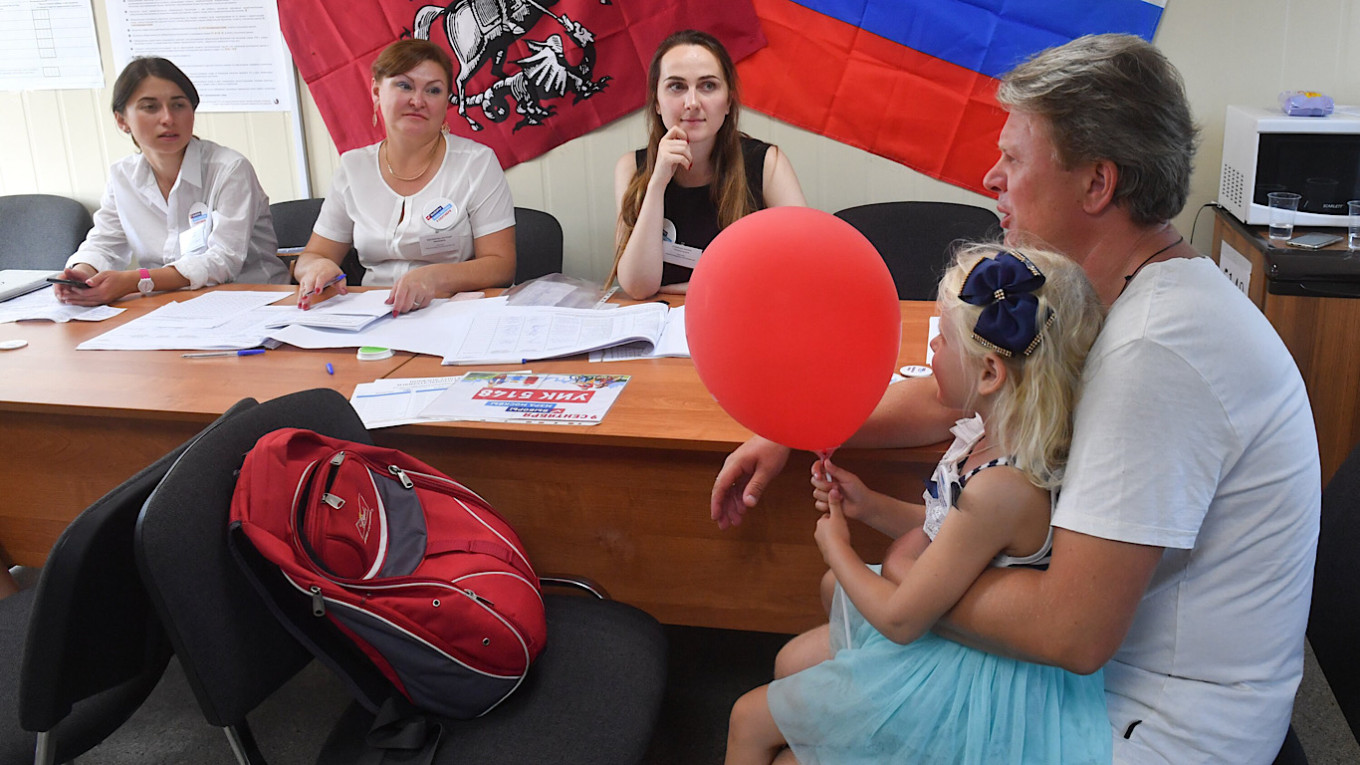
Meanwhile, data published by independent election watchdog Elections in Detail suggests that at least 2,531 candidates running in this year’s elections also have a criminal record in Russia — twice as many as the number of registered war veterans.
Most such candidates were convicted on charges of theft, fraud, hooliganism, drunk driving and those related to inflicting bodily harm.
Among the former convicts seeking office is Tatar politician Ruslan Yusupov, a member of the nationalist Liberal Democratic Party (LDPR).
Yusupov, who was previously convicted on charges of theft, arbitrary action and robbery on three separate occasions, is running for the post of the rais (head) of the republic of Tatarstan.
His bid for office, however, is all but doomed to fail, with incumbent Rustam Minnikhanov predicted to secure an overwhelming victory in his region, which is known for its endemic electoral violations.
The shadow of protests
This year’s local elections are the first since a controversial Kremlin-passed law accelerating the dismantling of the two-tier system of local governance sparked rare anti-government protests in the republic of Altai and an opposition campaign in the Krasnoyarsk region.
Among the regions where officials of the lowest government tier will be elected is the republic of Sakha (Yakutia), a region nearly the size of India with a population of less than 1 million people.
Sakha is one of the few Russian regions that decided to keep the two-tier system of local governance against the Kremlin’s directives, citing the vital importance of local deputies in a sparsely populated region with a majority rural population.
The republic’s own vibrant political life and ties of solidarity to Altaians could spark a renewed interest in local elections this year.
“During the coming elections, don’t listen to your bosses or officials… listen to your heart,” popular Yakutian actor and film producer Alexei Mikhailov said in a viral video posted on social media ahead of the vote.
“We all need to learn to be free people…only then the world will learn about us and our life will become better,” added Mikhailov.
A Message from The Moscow Times:
Dear readers,
We are facing unprecedented challenges. Russia's Prosecutor General's Office has designated The Moscow Times as an "undesirable" organization, criminalizing our work and putting our staff at risk of prosecution. This follows our earlier unjust labeling as a "foreign agent."
These actions are direct attempts to silence independent journalism in Russia. The authorities claim our work "discredits the decisions of the Russian leadership." We see things differently: we strive to provide accurate, unbiased reporting on Russia.
We, the journalists of The Moscow Times, refuse to be silenced. But to continue our work, we need your help.
Your support, no matter how small, makes a world of difference. If you can, please support us monthly starting from just $2. It's quick to set up, and every contribution makes a significant impact.
By supporting The Moscow Times, you're defending open, independent journalism in the face of repression. Thank you for standing with us.
Remind me later.



